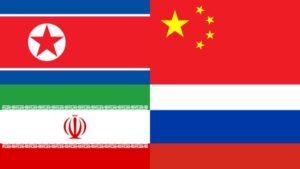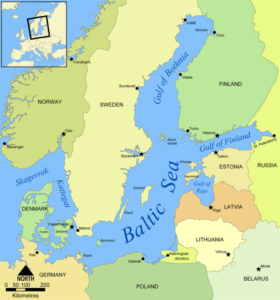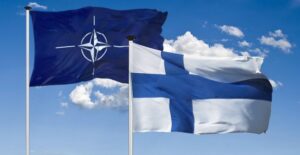- The security crisis in Europe has deepened in recent years, especially with the war in Ukraine.
- The Strategic Compass can transform the continent, making Europe a world reference in security and defense.
- The introduction of this strategy can influence global geopolitics and European relations with other great powers.
Increased military and civilian demands from the European Union in the security sector have raised expectations about the alliance’s contribution to crisis management and triggered a substantial increase in defense spending.
So, in order to take its destiny into its own hands, EU Heads of State and Government endorsed the Strategic Compass, which sets out a roadmap for the EU to become a stronger player in security and defense and which at the same time increases the sense of urgency regarding its implementation.
However, the application of these strategies may not only bring about changes in relations between Europe and major powers such as the United States, China and Russia, but may also affect its large participation in NATO, foreign missions, and the geopolitics of general.

What is the Strategic Compass for Security and Defense of the European Union?
On March 21, 2022, the European Union (EU) approved the Strategic Compass for Security and Defense during a meeting of the Council on Foreign Relations. The document is the result of a process that lasted almost two years and was based on the first joint assessment of the threats faced by the EU, as well as intense negotiations between member states.
In 46 pages, the Strategic Compass defines priority actions in four areas of work, with impactful titles: crisis management (ACT), resilience (SECURE), capabilities (INVEST) and partnerships (PARTNER). More than 50 deliverables are proposed, with deadlines, most of them defined before 2025.
The Strategic Compass represents the most concrete and realistic plan ever seen in EU history to ensure the bloc’s security. The document was practically completed when Russia invaded Ukraine on February 24, 2022, which caused a major change in the geopolitical landscape. Faced with this event, the member states and the European External Action Service – EEAS (an institution equivalent to a ministry of foreign affairs) had to revise and negotiate the document at the last minute, in a veritable adaptation marathon.
This policy emphasizes the need for the EU to work closely with its international partners, including NATO, the UN and third countries, to address common security issues and also recognizes the need for the Union to prepare for ever-evolving threats such as terrorism, the proliferation of weapons of mass destruction and cybersecurity.
How does the EU’s Strategic Compass view relations with NATO, Russia, China, and the United States?
The Strategic Compass considers NATO as the main foundation of European defense and highlights the importance of the partnership between the EU and NATO. A central challenge for alliances is ensuring that each agency can respond to complex crises effectively.
This implies the need for joint thinking and new policy solutions that can encourage the two groups to work in new and more aligned ways. To do this, it will be necessary to use the strengths of each organization.
As such, the policy highlights the need for the EU to work more closely with NATO on security and defense issues, including preparing for military threats, preventing conflict and promoting peace and stability.
Russia and the European Union
Currently, the main concern of European countries is war on the continent, due to President Vladimir Putin’s decision to invade Ukraine. As such, European leaders agree that the EU must become a stronger and more capable military actor to respond to all types of crises more autonomously from the United States.
Therefore, the Strategic Compass recognizes Russia as a threat to the security of the continent. As such, the policy emphasizes the importance of preserving security and stability in the region and promoting Moscow’s containment.
China and the European Union
In the case of China, the Strategic Compass sees it as a global cooperation partner, an economic competitor and a systemic rival. While cooperation with China is important on issues such as climate change, asymmetries in market opening and its growing presence in regional tensions, the country raises concerns about reciprocity and economic competition.
Beijing has been limiting access to its market and increasing its presence at sea and in outer space through cyber and hybrid tactics. Furthermore, the modernization carried out in China’s Armed Forces could impact regional and global security, making it important to ensure that China’s development and integration into the world takes place in a manner consistent with the international order.
United States and the European Union
Finally, regarding the United States, the Strategic Compass emphasizes the importance of the transatlantic relationship and recognizes the importance of the partnership with the United States for European security and defense. However, greater European autonomy may be in the US interest.
The Compass highlights the need for the EU to maintain a strong strategic partnership with the United States and to work together on issues such as combating terrorism, promoting stability and peaceful conflict resolution. However, in the longer term, the “Pivot to Asia” project and the possible conflict between China and Taiwan could abruptly change US priorities. Making European sovereignty even more important in its own defense.
What are the current shortcomings of the “Strategic Compass” in its aim of Europe’s greater international influence among the great powers?
Since the creation and dissemination of the document, some experts and skeptics have identified some possible weaknesses in the Strategic Compass plan:
- Lack of detail: While the strategy outlines the overall priorities and goals for the EU’s security and defense policy, it is criticized for lacking specific details on how these goals will be achieved. Some experts argue that without a clear plan of action, the document may not be effective in guiding policy decisions.
- Limited scope: The strategy focuses primarily on military and defense issues, which means it may ignore other important aspects of security, such as economic and environmental factors. Some experts argue that a broader and more holistic approach to security is needed to address the complex challenges facing the EU.
- Limited resources: The document sets out ambitious goals for the EU’s security and defense policy, but it is unclear whether the necessary resources will be available to achieve these goals. Some experts argue that the EU will need to invest more in defense and security if it is to carry out the tasks outlined in the document.
In addition, some experts claim that an important challenge is related to the credibility of the alliance. The imbalance between the identified threats and the resources proposed by the document is believed to be evident, and a rapid intervention force of 5,000 EU troops would hardly make much difference.
Furthermore, there is no consensus that the EU’s relationship with the US and NATO is a settled issue and the Strategic Compass document does little to clarify this relationship. Some experts even argue that a better alternative would be to conceive of the EU’s new security strategy as a contribution to the creation of a European pillar within NATO, rather than a separate, parallel undertaking.
Why is a more sovereign European Union important in the global power game between the great powers?
A more sovereign European Union (EU) is important in the global power game between the great powers, due to the various areas that can be influenced, such as: military capacity, economic impact, political power and even climate change.
The Strategic Compass will lead to the creation of a strong rapid deployment capability of up to 5,000 troops, regular live exercises on land and at sea, a substantial increase in defense spending by member states to reduce military gaps, and stronger investments in research and defense development.
Furthermore, European political power also plays a central role in international negotiations and peace and security issues. A more sovereign EU would be able to act more autonomously in relation to other states and strengthen itself in foreign policy and security.
Another important point is the possible greater engagement in global challenges, such as climate change, terrorism and migration. Greater EU engagement on these issues would be able to exert a positive influence in other regions of the world.
Finally, greater European independence will allow the continent’s military autonomy from the United States, giving greater freedom to local leaders in terms of political and commercial negotiations with rivals of the American government, such as China.
In short, sovereignty in defense and security is relevant because in the geopolitical chessboard of the International System, the influence and power of nations are often determined by their ability to position themselves and act autonomously and effectively. And it is precisely for this reason that the European Union seeks such autonomy via its “Strategic Compass for Security and Defense.”


日軍第731部隊旧址_PB121201-e1713902593308-300x224.jpg)









[…] as the only legal government representing all of China. This statement goes against the idea of Strategic Ambiguity of the United States (and other countries) in relation to Taiwan, where Washington says that there is only one China, […]